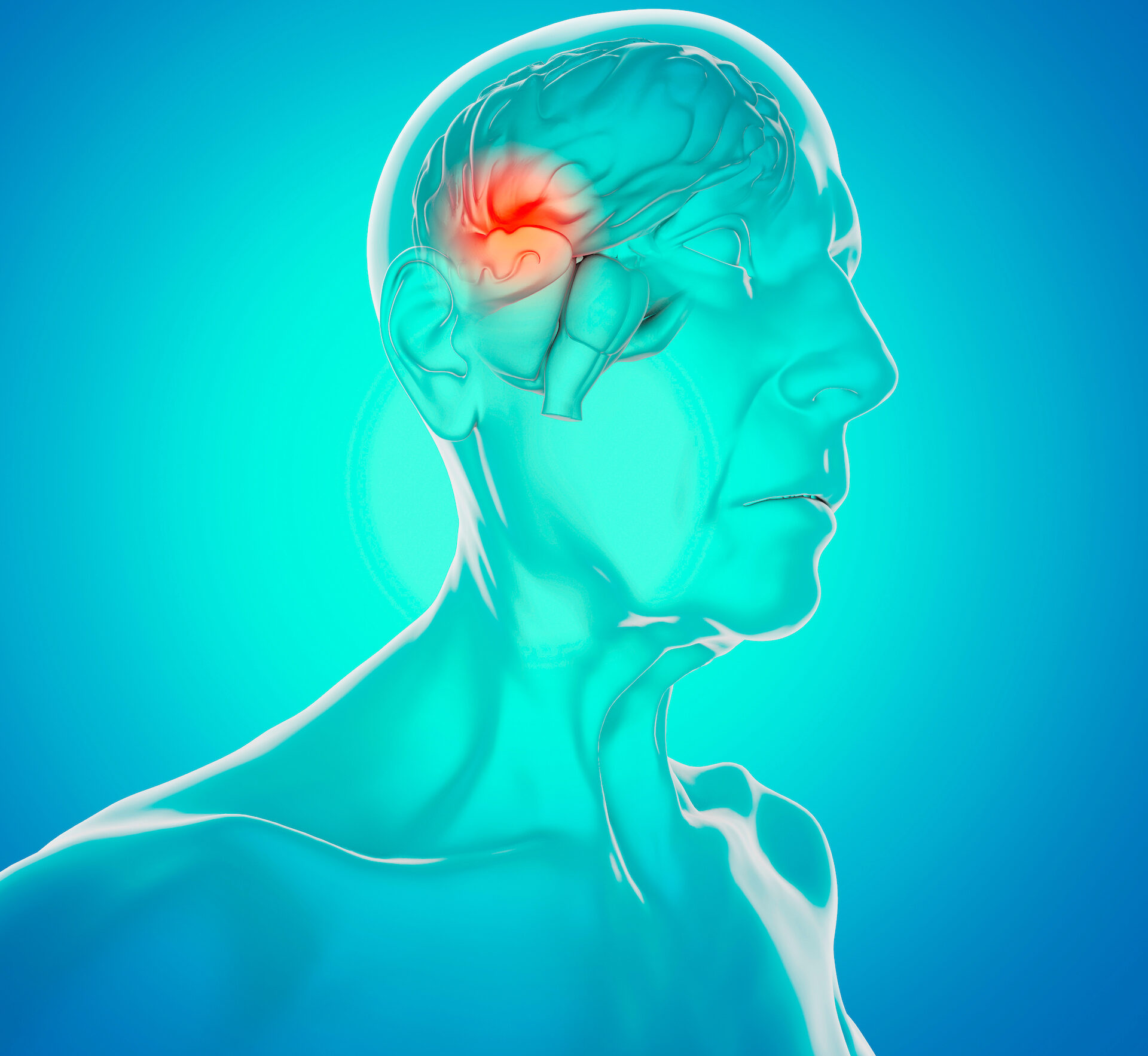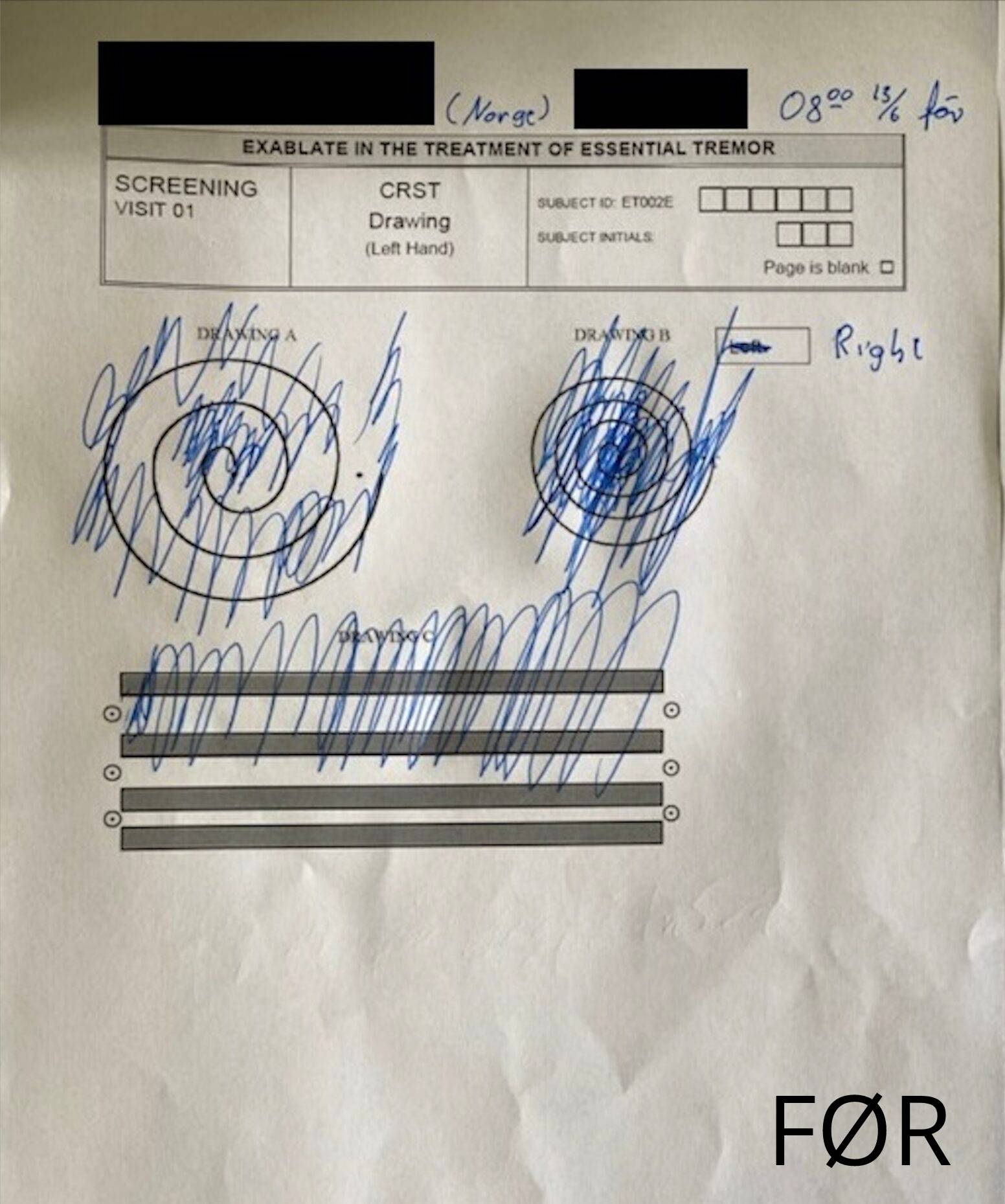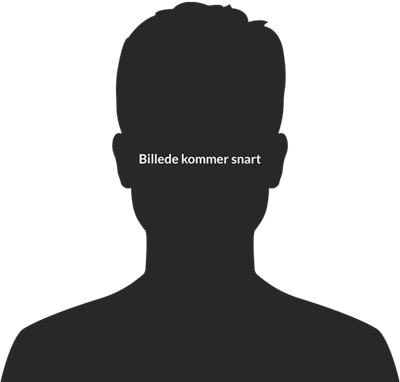Danish FUS Center treats
patients against uncontrollable tremor
Danish FUS Center treats
patients against uncontrollable tremor
Contact us
Call us by phone between 8 a.m. and 4 p.m
or write an email.
mail@centerfus.com
Treatment without surgery
Treatments at the Danish FUS Center take place exclusively using focused ultrasound. The treatment is called MRgFUS. The most gentle treatment available.
Location
Our clinic is located in Middelfart. It is 2 hours drive from Copenhagen, 45 minutes drive from Billund, 2½ hours drive from Hamburg.
Contact us
Call us by phone between 8 a.m. and 4 p.m
or write an email.
mail@centerfus.dk
Treatment without surgery
Treatments at the Danish FUS Center take place exclusively using focused ultrasound. The treatment is called MRgFUS. The most gentle treatment available.
Location
How do you know if you are a candidate for treatment with focused ultrasound?
To be eligible for treatment with focused ultrasound, you must be able to answer yes to all of the following questions:

Have you been diagnosed with Essential Tremor or Parkinson’s Dominant Tremor?

Have you tried at least two types of medication for your tremor?

Would you be comfortable lying still in an MRI scanner for two to three hours?
If you meet all three criteria, you may be a candidate for treatment with focused ultrasound. Contact the Danish FUS Center and get the contact details of a specialist from our medical team, who will initially contact you by telephone.

Top Experience
The first in Denmark
DFC – Danish FUS Center was the first in Denmark to treat patients with this fantastic technology, which is outpatient and gentle.
Central location
DFC – Danish FUS Center can be reached within 2.5 hours from 3 airports with international connections.
Caring for patients
We offer a process that supports the patient right from arrival to finished treatment.
Top experience
As the first in Denmark with
MRgFUS treatments, we offer the highest level of security for patients.
About focused ultrasound
(FUS = Focused Ultra Sound)

Focused ultrasound is a non-surgical, minimally invasive treatment for patients with tremor disorders such as Essential Tremor and Parkinson’s Dominant Tremor – both of which are a nerve-related condition that results in uncontrollable tremors – most often in the hands, head or voice. The nerve that controls these movement disorders is located in the brain, and it is the nerve that we treat with sound waves.
Focused ultrasound has many advantages over other treatment types – including:
It does not require traditional surgery. There is no incision or opening of the skull, reducing the risk of infections.
The ultrasound waves precisely target the area of the brain causing tremor, without damaging the surrounding healthy tissue.
It is an outpatient treatment with a short recovery time for the patient.
Most patients experience an immediate and significant reduction in their tremor. The effect may be permanent or may last for a number of years.
Patients are not exposed to radiation.
Who can benefit from FUS treatment
The treatment is for people with a confirmed diagnosis of Essential Tremor or Parkinson’s Dominant Tremor, who have not had a satisfactory effect via treatment with medication.
Essential Tremor and Parkinson’s Dominant Tremor
We treat patients against tremors from Essential Tremor and Parkinson’s Dominant Tremor. Essential Tremor is the most common movement disorder, estimated to affect 1% of the world’s population, or nearly 100 million people globally. As for people with Parkinson’s, about 80% of them experience uncontrollable tremors during their lifetime. Although the causes of these tremor disorders are not yet understood in detail, decades of research have now proven that tremors can be alleviated by treating a small area deep in the brain called the Thalamus that regulates movement. This is what the FUS treatment does.
For some people, the tremor is so severe that it interferes with their ability to function on a day-to-day basis. This often results in a large loss of resources for the individual, as the forces are used to concentrate an abnormal amount on ordinary everyday tasks, such as writing, eating, drinking, grooming etc. The need for high concentration drains energy and can have other disease consequences. Ultimately, it can result in general life fatigue. As a result of the tremor disorder, those affected in some cases need help from family or from public or private home help in order to function. Fortunately, treatment with focused ultrasound is a fantastically gentle and effective treatment, which gives the affected people resources and autonomy back, and also saves the society around them resources.
Test of before and after scenario
All patients go through a test course before and after treatment, which includes includes draw/write test. This is an example from a Norwegian patient treated in 2022 for tremors in the right arm.

The BEFORE scenario shows the patient’s ability, before treatment, to draw a line respectively within the pre-printed spirals and between the lower paper block lines.

The AFTER scenario shows the patient’s ability, after treatment, to draw the line within the most difficult spiral and within the narrowest line at the bottom.
The treatment
The treatment is carried out while the patient is positioned in an MR scanner. Before the patient is taken under the scanner, we shave the head to ensure that hair does not block the sound waves. A cap is attached that allows cool water to circulate, protecting the patient’s scalp from the heat of the ultrasound. In addition, the patient’s head is secured in a frame that prevents the patient from moving the head during the treatment.
The patient will be awake and able to communicate with our medical team during treatment. It is possible to get sedatives if deemed appropriate. The medical team stays alternately in the treatment room and in a room next to the MR scanner, where they plan and carry out the treatment from a computer. An MRI scan of the patient’s brain is performed to precisely locate the treatment area and then initially small doses of ultrasound are given to confirm the target. Once the medical team is sure of the location, the focused ultrasound power is increased to make a permanent effect on the nerve.
The medical team monitors the patient’s vital signs and brain temperature. At times during treatment, a doctor will ask the patient questions and ask the patient to perform tasks such as moving their hand, holding objects, or writing. This helps the medical team assess whether the patient’s tremors are subsiding. While the treatment is generally painless, some people experience mild headaches, dizziness or nausea. These sensations usually disappear shortly after treatment.
When the treatment is finished, the patient is moved to a rest room. The vast majority of patients can go home the same day. The medical team will tell you when to return for any follow-up visits.
About FUS treatment
The treatment is outpatient, where high-intensity sound waves are focused via specialized scanning equipment to treat the nerve causing the disorder. The sound waves safely pass through the skin, bones and brain to reach the target, without the need for traditional surgery. Just as a magnifying glass can focus sunlight to burn a hole in paper, the focused ultrasound generates appropriate heat to passivate and eliminate cells in the nerve without damaging surrounding tissue. Recovery time for the patient is short and the treatment can significantly reduce tremors, improving the ability to perform daily activities such as eating, drinking and writing. However, the treatment does not guarantee the cure of any underlying disease.
Risks
Complications and side effects are uncommon, but can e.g. include:
- Muscle weakness for a while
- Unsteady balance when walking
- Numbness or tingling in the fingers or elsewhere in the body

Evaluation for treatment
If you are referred to our treatment program, you will need to have a CT scan to determine if you are suitable for treatment with focused ultrasound. Some patients’ skull composition prevents the focused ultrasound from reaching the target tissue sufficiently for us to recommend the treatment, so this is carefully investigated in all candidates.
If our evaluation shows that this treatment is not suitable for you, we will notify you and refer you to other forms of treatment.
Resuming an active everyday life
Some patients experience headaches, nausea or problems with balance during or immediately after treatment. These effects usually disappear quickly. Most patients are able to return to work and their normal activities within a few days.
About DFC – Danish FUS Center

Danish FUS Center (DFC) is a Danish-based specialist center for the treatment of nerve disorders with the pioneering FUS technology – Focused Ultra Sound – or in Danish Focused Ultrasound. Our largest treatment areas are tremor disorders, such as Essential Tremor and Parkinson’s Dominant Tremor, where patients suffer from uncontrollable tremors.
Denmark is ranked high as one of the most recognized countries for treating patients. With the Danish FUS Center’s highly specialized medical team, we offer a fast process and quality treatment that is among the best in the world.
Danish FUS Center is located in the center of Denmark, in Middelfart, which is a 2-hour drive from Copenhagen airport, 45 minutes from Billund airport and 2½ hours from Hamburg airport.
We speak fluent English and Danish.
Medical team
Danish FUS Center has a dedicated and experienced medical team.

Christian Bonde
Specialist in neurosurgery
Christian Bonde is a specialist and research lecturer in Neurosurgery at Odense University Hospital. At OUH, he works with binocular operations in the brain as well as open surgical treatment of patients with tumors in the brain and skull. Christian Bonde is trained as a doctor from the University of Southern Denmark in Denmark. Alongside medicine, Christian Bonde has been associated with the University of Southern Denmark as a researcher in brain research and completed a PhD in experimental neurobiology in 2002. Christian Bonde has experience as a doctor at Odense University Hospital Denmark, Aarhus University Hospital Denmark, and the private hospital Mølholm. In addition to working at several hospitals, Christian Bonde participates in work as a consultant at the Agency for Patient Safety and the Agency for Patient Complaints.

Morten Blaabjerg
Specialist in neurology, professor
Morten Blaabjergs is a clinical professor and has experience from the University of Southern Denmark Odense and Odense University Hospital, Denmark. He has participated in the Danish Neurological Society (DNS) and has experience in e.g. Biomechanics at the Nordic Institute for Chiropractic and Clinical Biomechanics, Medical Neurobiology, Neuroanatomy, Cell Biology. In addition, Morten Blaabjerg has experience from Research at the University of California, Neurological Clinic at Rigshospitalet in Denmark. Morten Blaabjerg is the senior physician responsible for movement disorders at the Department of Neurology at Odense University Hospital, Denmark.

Frantz Rom Poulsen
Specialist in neurosurgery, professor
Frantz Rom Poulsen is a specialist, professor and research leader in Neurosurgery at Odense University Hospital Denmark. At Odense University Hospital, the work is primarily with surgical treatment of patients with tumors in the brain and skull as well as with research and development within neurosurgical disorders. Frantz Rom Poulsen is a medical doctor from the University of Southern Denmark, Denmark. Frantz Rom Poulsen has experience from the University of Southern Denmark as a researcher, teacher and student researcher in brain research, and he has completed a PhD in experimental neurobiology. Frantz Rom Poulsen has further experience from work at Fredericia Hospital and a medical practice in Kolding. Since 2005, Frantz Rom Poulsen has worked in neurosurgery at Odense University Hospital Denmark and Aarhus University Hospital Denmark.
Questions or comments?
Contact form
Address
Teglgaardsparken 118
5500 Middelfart
Denmark
